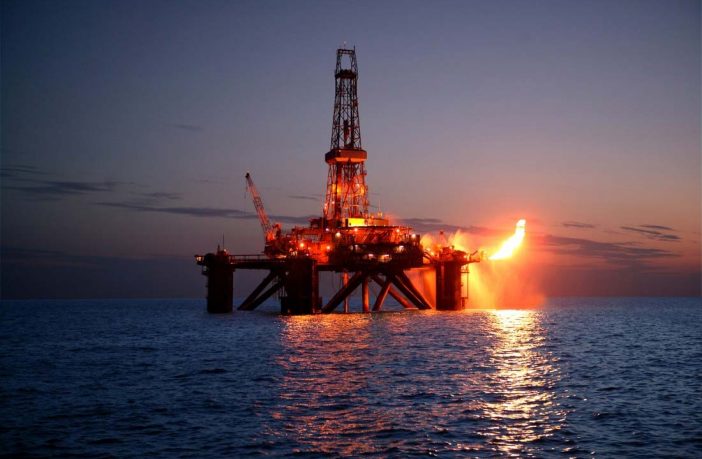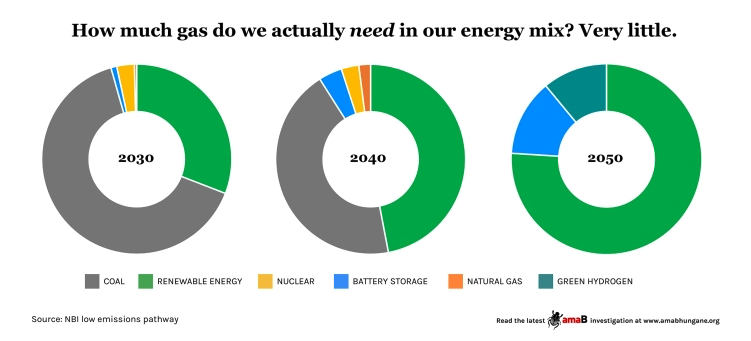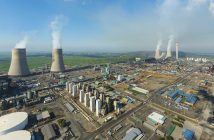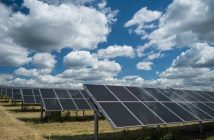- A study from a coalition of 86 corporations – including Eskom, Sasol and Shell – shows that very little natural gas is needed to achieve energy security.
- So why is government and business pushing a plan for a R628-billion spend – perhaps up to R1-trillion – on gas?
If we want a power system dominated by clean, renewable energy, we need lots of natural gas – or so we are told.
This drumbeat, which has set up gas as a “critical transition fuel”, has been meted out by government ministers, the oil and gas lobby, some serious researchers and everyone of varying degrees of cynicism in between.
“The gas industry will be with us in the transition, in a big way,” Mineral Resources and Energy Minister Gwede Mantashe told Parliament earlier this month.
“If Shell is able to find domestic offshore gas, this could play a key part in diversifying South Africa’s energy portfolio,” Hloniphizwe Mtolo, the chair of Shell’s downstream operations, told the Eastern Cape High Court in November, adding that gas is a “strategic bridge to low carbon emission targets”.
Related news: Natural Justice and Greenpeace Africa join case to stop Shell’s Wild Coast seismic survey
President Cyril Ramaphosa even endorsed this view. At the Mining Indaba in Cape Town, he told delegates that African countries “need to be able to explore and extract oil and gas” as this would ensure “energy security” as they decarbonise their economies.
But when we say gas is “critical”, how much gas do we actually need?
In February, the National Business Initiative (NBI) – a coalition of 86 major companies, including Eskom, Sasol and Shell – published a study showing that the electricity sector likely needs just 17 petajoules (PJ) of gas a year until 2035.
To put that into perspective, South Africa already imports 180 PJ a year from Mozambique. Demand from the electricity sector would increase as we switch from coal to renewables – rising to 100 PJ by 2040 – but is unlikely to ever be high enough to support a domestic gas industry. And will fall off a cliff as soon as green hydrogen – at affordable prices – becomes available.
The NBI report, titled The Role of Gas in South Africa’s Path to Net-Zero, confirms a 2020 study by Meridian Economics and government’s Council for Scientific and Industrial Research (CSIR), which concluded that a flexible power source like gas should make up no more than 4% of our energy mix by 2050.
“[T]he main finding of our work is renewables, renewables, renewables … we need to build three to four gigawatts of renewables every year from now until 2050,” Steve Nicholls, the NBI’s Head of Environment, told amaBhungane.
But – driven by a desire to exploit the final boom of the fossil fuel industry – a campaign for gas is being waged, based not on what our electricity system needs, but on what a handful of politicians, and oil and gas executives want.
This is a small extract from a very in depth and well researched article written by investigative journalist, Susan Comrie from amaBhungane Centre for Investigative Journalism.
Read more on this exclusive story from the amaBhungane Centre for Investigative Journalism HERE














